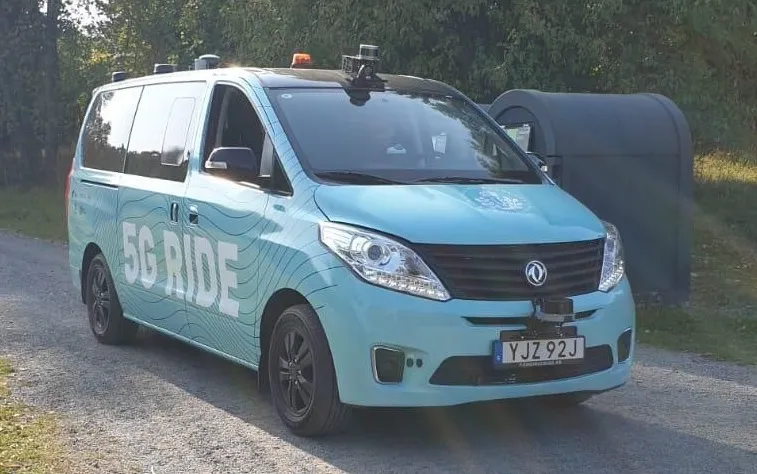The findings of Euro NCAP and ANCAP, the independent safety bodies for Europe and Australasia, on the effectiveness of low speed autonomous emergency braking in real-world rear-end crashes have concluded that low speed autonomous emergency braking (AEB) technology needs widespread fitment for maximum benefits.
Published in the online edition of the Accident Analysis & Prevention journal, the publication says that AEB is one of the more promising safety technologies that are becoming increasingly common o
May 14, 2015
Read time: 3 mins
The findings of 6437 Euro NCAP and 6373 ANCAP, the independent safety bodies for Europe and Australasia, on the effectiveness of low speed autonomous emergency braking in real-world rear-end crashes have concluded that low speed autonomous emergency braking (AEB) technology needs widespread fitment for maximum benefits.
Published in the online edition of the Accident Analysis & Prevention journal, the publication says that AEB is one of the more promising safety technologies that are becoming increasingly common on modern passenger cars. The low speed option normally consists of an automatic brake function that operates for speeds up to 30km/h or 50km/h. Previous studies have predicted significant expected benefits of AEB technology in low speed rear-end crashes but, so far, there has been little evidence that they really work.
Real-world evaluations of advanced safety systems are often limited by slow take-up rates, insufficient crash data and lower crash rates of new, safer vehicles. Euro NCAP, with support of ANCAP, has initiated the Validating Vehicle Safety through Meta-Analysis (VVSMA) group, bringing together experts from governments, industry, consumer and insurance organisations. The group pooled data from five European countries plus Australia using a standard analysis format and a novel prospective meta-analysis approach. Induced exposure methods were adopted to control for any extraneous effects.
The findings showed a 38 per cent overall reduction in real-world, rear-end crashes for vehicles fitted with low speed AEB compared to a sample of equivalent vehicles with no AEB. There was no statistical difference found between urban (≤60km/h) and rural (>60km/h) speed zones.
Dr Anders Lie, the group chairman from the746 Swedish Transport Administration, commented: “The meta-analysis approach used in this analysis is a unique academic contribution to the evaluation of vehicle safety technologies internationally and proved to be reliable with robust findings. Clearly, at this level of effectiveness, low speed AEB is potentially an important active safety technology and widespread fitment through the vehicle fleet should be encouraged in the interest of improved vehicle safety.”
Dr Michiel van Ratingen, Secretary General of Euro NCAP, said: “These findings strongly support our decision to make AEB technology a key discriminator in the safety rating of new vehicles. Through VVSMA, we will continue to monitor the effectiveness in reducing real world crashes of the advanced systems that are promoted in order to validate and improve the overall star rating.”
Published in the online edition of the Accident Analysis & Prevention journal, the publication says that AEB is one of the more promising safety technologies that are becoming increasingly common on modern passenger cars. The low speed option normally consists of an automatic brake function that operates for speeds up to 30km/h or 50km/h. Previous studies have predicted significant expected benefits of AEB technology in low speed rear-end crashes but, so far, there has been little evidence that they really work.
Real-world evaluations of advanced safety systems are often limited by slow take-up rates, insufficient crash data and lower crash rates of new, safer vehicles. Euro NCAP, with support of ANCAP, has initiated the Validating Vehicle Safety through Meta-Analysis (VVSMA) group, bringing together experts from governments, industry, consumer and insurance organisations. The group pooled data from five European countries plus Australia using a standard analysis format and a novel prospective meta-analysis approach. Induced exposure methods were adopted to control for any extraneous effects.
The findings showed a 38 per cent overall reduction in real-world, rear-end crashes for vehicles fitted with low speed AEB compared to a sample of equivalent vehicles with no AEB. There was no statistical difference found between urban (≤60km/h) and rural (>60km/h) speed zones.
Dr Anders Lie, the group chairman from the
Dr Michiel van Ratingen, Secretary General of Euro NCAP, said: “These findings strongly support our decision to make AEB technology a key discriminator in the safety rating of new vehicles. Through VVSMA, we will continue to monitor the effectiveness in reducing real world crashes of the advanced systems that are promoted in order to validate and improve the overall star rating.”







